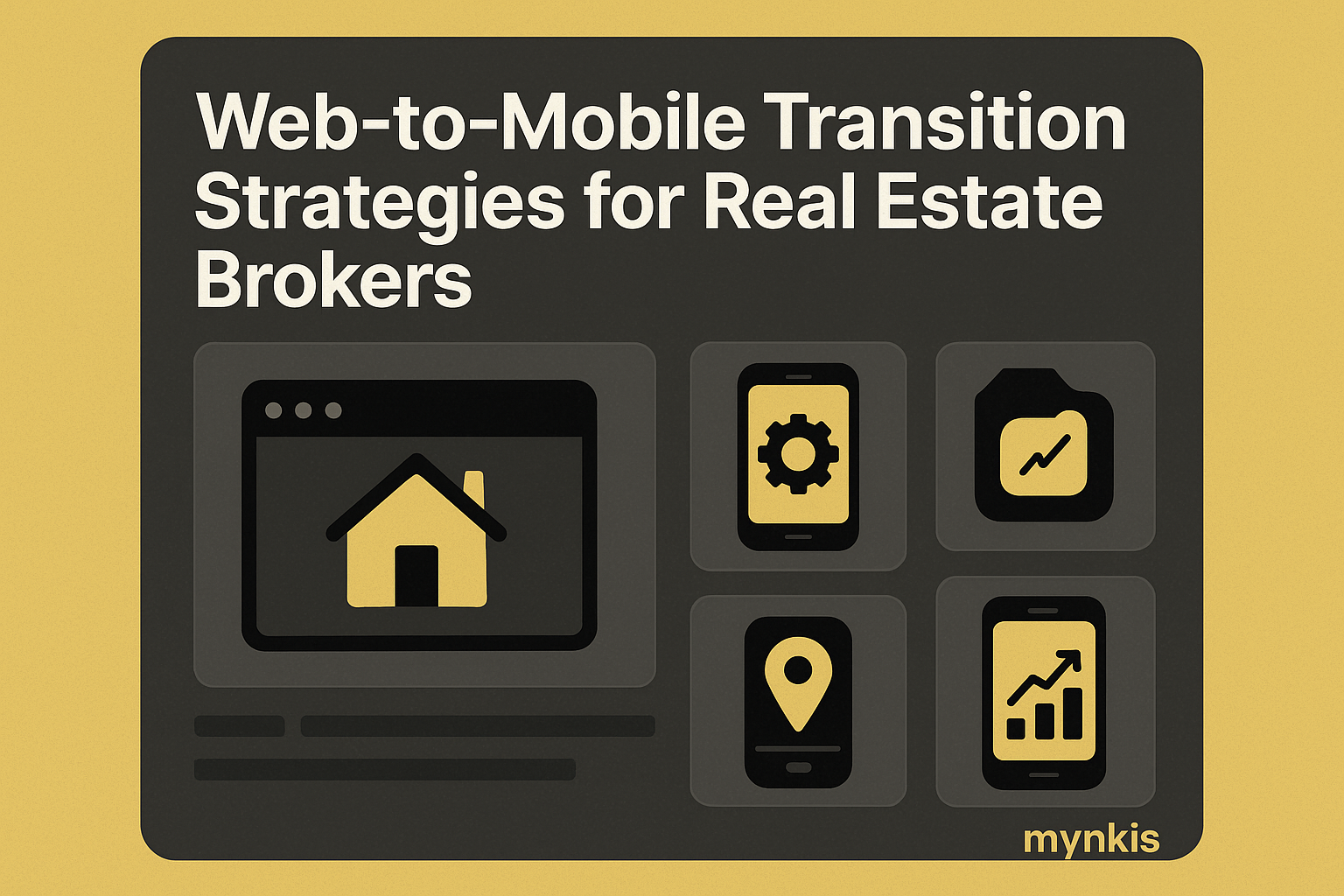Schedule a Demo
In today's market, where attention spans rival the lifespan of a goldfish, delivering seamless user experiences from web to mobile devices is absolutely crucial. As a broker navigating the complex real estate market, understanding the nuances of transitioning your property listing websites to a mobile platform can truly transform your reach and engagement. I've seen firsthand how embracing mobile technology can open up a world of opportunities for local market penetration.
When transitioning from a web-based platform to a mobile app, the user experience becomes paramount. Mobile users, often on the go, demand swift and intuitive navigation. In my work with various businesses, I've found that apps designed with the user in mind - where simplicity and efficiency guide every tap and swipe - see significantly higher engagement rates. Ensuring your app has a clean, easy-to-use interface is essential for keeping potential clients interested in your listings.
The power of local search cannot be overstated in real estate. As brokers, your business thrives on connecting with clients within your immediate area. Custom software development offers the opportunity to refine your property listing website for mobile, incorporating SEO features specifically tailored to local queries. By utilizing geolocation data and optimizing for local keywords, you can significantly improve your visibility to users searching for real estate options in your vicinity.
While a dedicated mobile app provides the ultimate user experience, the transition period often benefits from responsive web design. I’ve supported many companies in crafting websites that fluidly adapt to various screen sizes, from desktop to smartphone, without losing functionality or aesthetics. This approach ensures that your listings remain accessible to a broad audience while you develop a more specialized mobile solution.
Mobile users interact differently with content compared to desktop users. Features like swipe gestures, touch-friendly menus, and push notifications resonate well with on-the-go browsers. In one instance, I worked with a team to integrate advanced search filters into a real estate app, enabling users to refine their property search easily, right from their smartphones.
The concept of 'search' extends beyond the traditional website to include app stores. App Store Optimization (ASO) is a critical component of any mobile transition strategy. Ensuring your app's title, description, and keywords are finely tuned will increase your visibility in app stores, which is invaluable for bringing in new users. Implementing ASO strategies hand-in-hand with your website's SEO can create a potent digital presence that drives traffic to your listings.
In the pursuit of optimizing for a web-to-mobile transition, it’s vital to assess the tangible benefits it can deliver. A case study I came across involved a real estate agency that implemented these mobile-first practices and saw an impressive 40% uptick in user engagement. Their app, now prioritized for local SEO and user experience, performed remarkably better in converting web visitors into app users.
Moving to a mobile app isn't without its hurdles. I recall working on a project where ensuring cross-platform compatibility posed a significant challenge. It's important to develop your app with a range of devices in mind - from iOS to Android - ensuring that every potential client can view your listings seamlessly. Keep the technical aspect of your transition well-documented and consider outsourcing complex elements to software development experts if internal resources are stretched.
Analytics are your guidepost when making a web-to-mobile shift. By analyzing user behavior both on your website and the developing app, you can tailor the transition to meet real-world needs. Tools like Google Analytics can provide invaluable insights into where users are dropping off, what features they use most, and how different groups interact with your content.
Adapting content for a mobile audience is no small feat. The shorter attention spans necessitate concise yet informative listings and descriptions. Employing rich media, like high-quality images and videos, can also set your listings apart on a mobile app, where visual impact often trumps text. Mobile users respond well to brief, punchy listings that get straight to the point of what’s on offer.
Push notifications have emerged as a dynamic tool for real estate brokers to keep their clients engaged and informed. They offer a direct line to communicate new listings, price changes, or scheduled open house events. Utilizing push notifications effectively can increase the frequency at which users revisit your app, thus improving the chances they’ll act on a listing they find appealing.
Building a solid mobile app often involves leveraging the expertise of partners or collaborators. When I've been involved in projects where the scale or complexity required more than internal capabilities, collaboration with reputable technology firms was key. These partnerships can bring specialized insights and solutions to challenges like incorporating SEO features into your mobile platform.
Looking to the future, staying abreast of trends in mobile app development is crucial for real estate brokers. Augmented reality (AR) tours of properties, AI-driven personalized listings, and increased reliance on data privacy are all potential game-changers. Understanding and preparing for these trends can place you at the forefront of digital real estate marketing.
Ultimately, moving from a web platform to a mobile app requires a multifaceted approach. It's about more than just converting your site; it's about enriching the user experience, enhancing local SEO, and staying ahead of technical and market trends. By thoughtfully crafting your web-to-mobile transition strategy, you can ensure your property listings remain compelling and accessible to your target audience, helping drive growth and success in the competitive real estate landscape.
